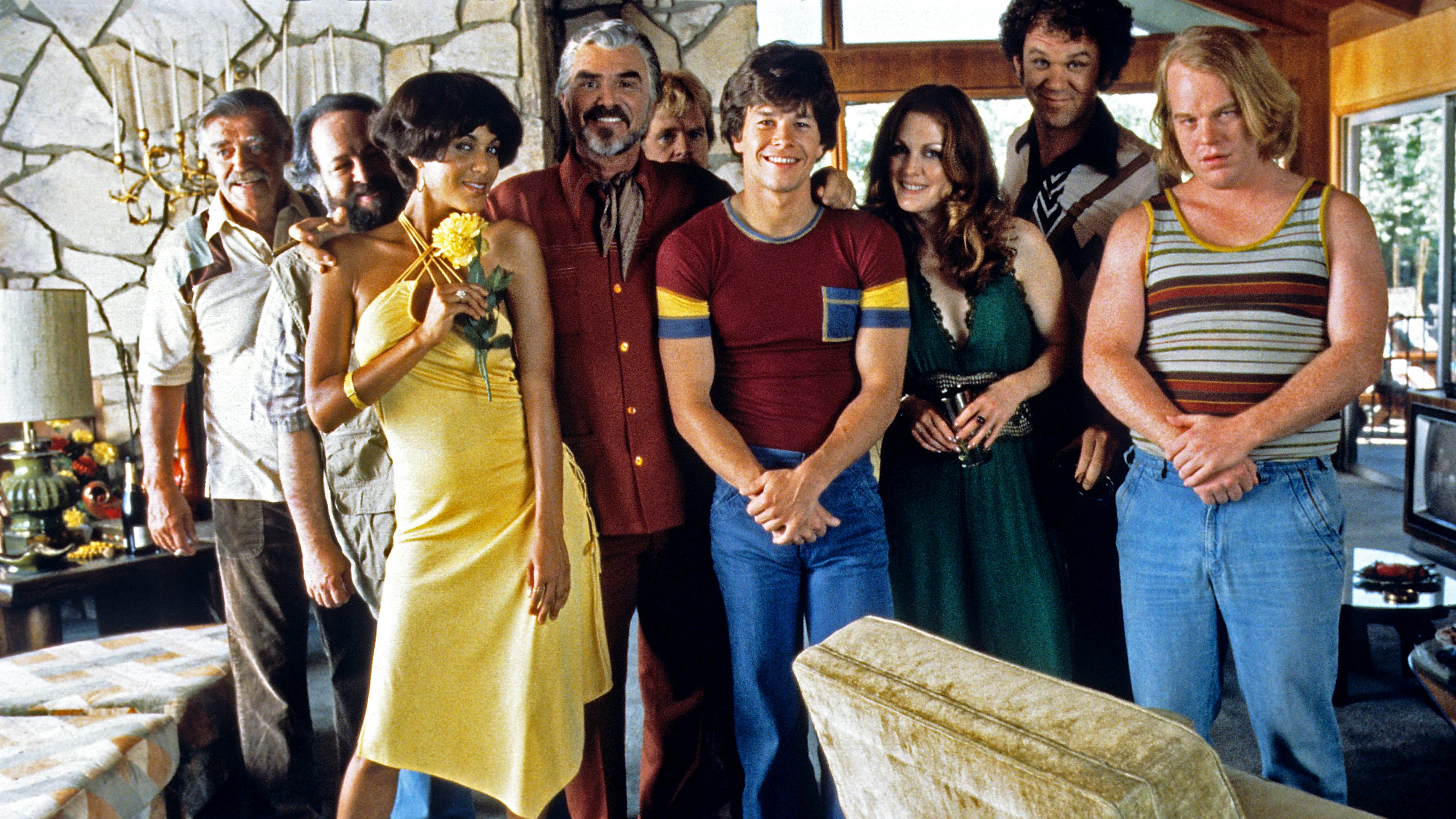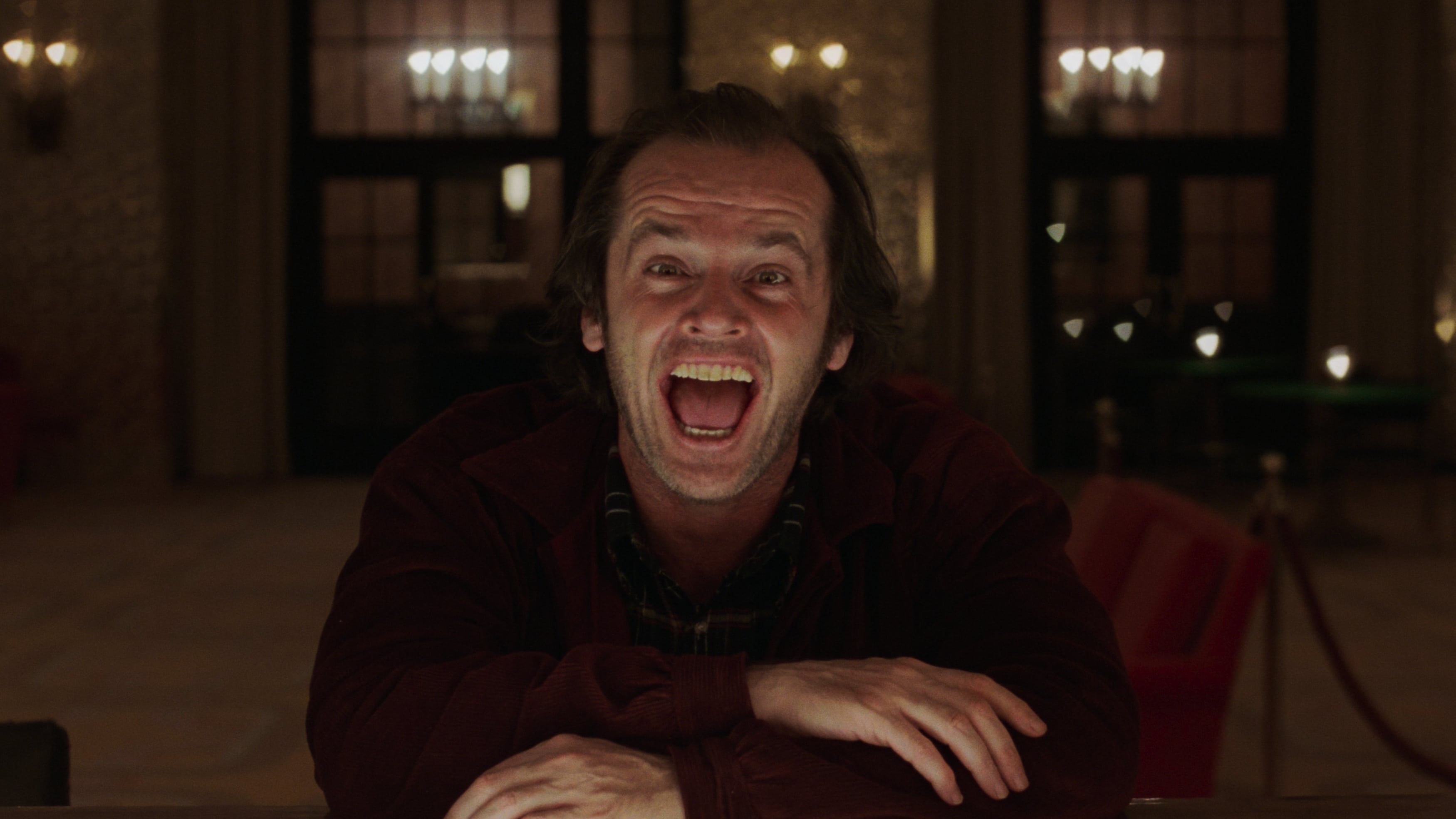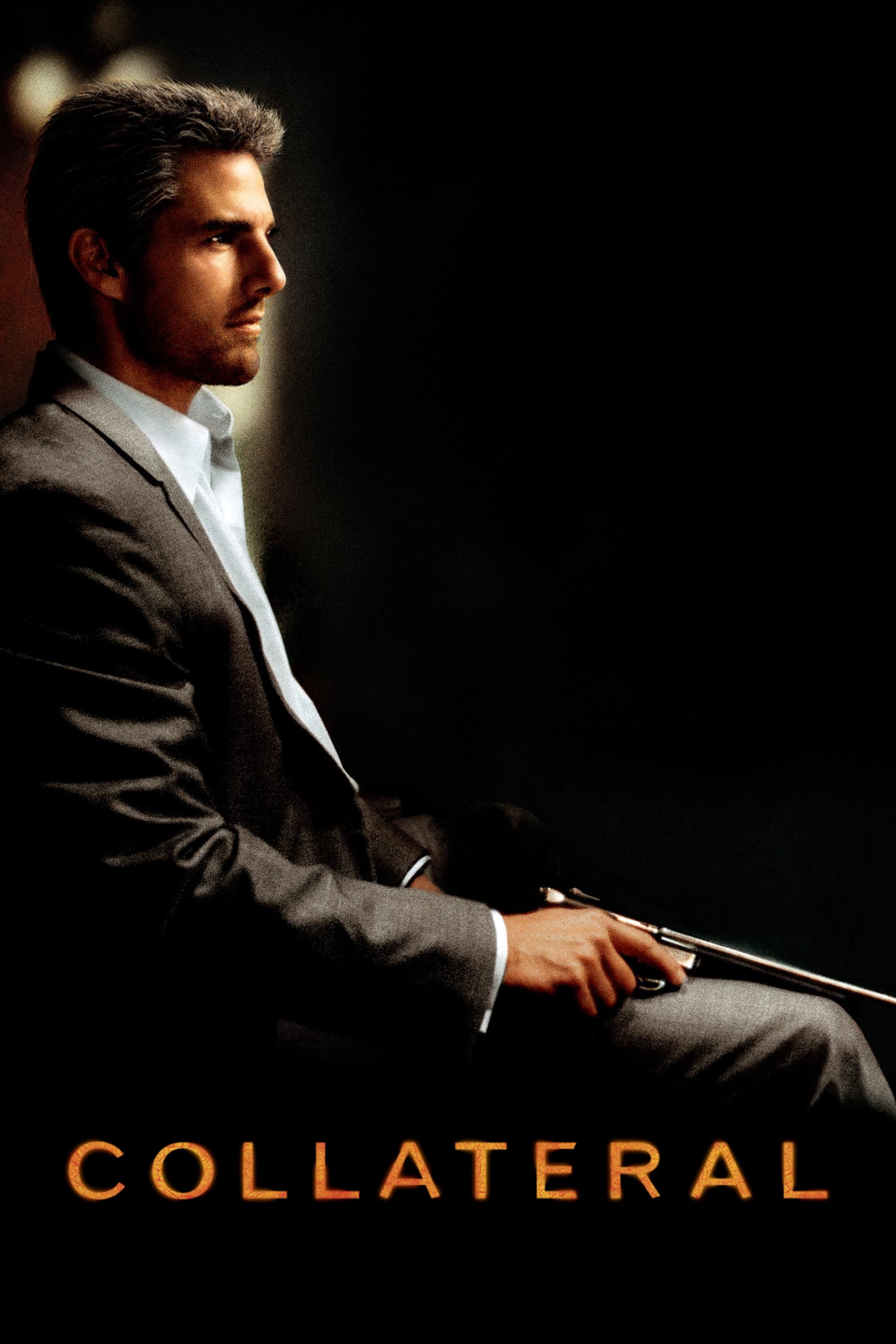Hello everyone! I realize this probably should have been the first blog post, but as movie lovers know, it’s never a bad time to share your favorite movies. The best part of having this as a hobby is being able to recommend great movies to others. Few things in life are as enjoyable to us cinephiles than when someone gets back to us on something we suggested to them telling us how much they enjoyed it. It goes without saying that it also feels amazing to show a friend or family member a movie you love and watch their reactions to all the best scenes and moments. There are literally countless great films from all over the world, in more languages than any one person could ever hope to speak in their lifetime. Of course, this means that there are many more great films than are listed here, so this is in no way an attempt to act like my taste is in any way more refined than anyone else. Without further ado, let’s get into it! To provide some structure, these won’t be ranked except for the final ten entries, and, this is just a matter of personal preference, so I’m also not necessarily saying that any of these movies are “better” than the others as these all represent what is, to me, as good as movies can be. This list will more or less be a surface level introduction on my thoughts for each of the movies, but I would love to write a more in-depth retrospective review on them as I revisit them!
20. Taxi Driver (1976) Dir. Martin Scorsese
Kicking off the list is Martin Scorsese’s Taxi Driver, starring Robert De Niro in one of his many career defining roles, and this is not the last time he and Scorsese appear on this list. While Scorsese and De Niro initially set out to make a film about the seedier parts of New York City, they realized that the movie they were making was about the man at the center of it all. It’s a difficult movie to watch, not necessarily because of the content or violence, but because there isn’t a singular thread that runs throughout the film’s plot throughout the course of the runtime, which renders the film difficult to decipher on first viewing. On repeat viewings, the film’s descent into nihilism and masculine fantasy become more harrowing and unsympathetic, resulting in one of the most fascinating character studies in cinema.
19. The Wrestler (2008) Dir. Darren Aronofsky
Darren Aronofsky is a filmmaker where all reactions are reasonable. There are those who love the raw and undeniable emotional power that many of his films have, but there are also those who don’t see his movies as anything other than glorified and pretentious misery porn. While I definitely think the latter group’s criticisms are certainly valid at times, The Wrestler is innocent of all such claims. It’s such a heart-wrenching portrayal of aging and self-destruction, anchored by a career best performance by Mickey Rourke. The story parallels Rourke’s own personal battles, capped off by a staggeringly beautiful finale that is sure to pack an emotional punch.
18. Lawrence of Arabia (1964) Dir. David Lean
I’ll admit that I’ve only seen this film in its entirety once, but that one time was fortunate enough to be in a packed theater full of respectful moviegoers. David Lean is no stranger to the historical epic that we just don’t see too often anymore, and Lawrence of Arabia stands out as his opus, though Bridge on the River Kwai is a close second. The ambition in scale and the filmmaking is staggering, most particularly in a sequence in which a legion of horseback riders charge a town in the desert, and the wide angle gives us a complete view of everything that is happening. It’s literally impossible to not be in awe of how many moving pieces are operating at once to create such a sequence. Clocking in at nearly four hours, it is certainly a commitment, but one that Lean and Peter O’Toole make more than worth your while.
17. Heaven’s Gate (1980) Dir. Michael Cimino
Michael Cimino’s Heaven’s Gate is arguably the single most notorious box office flop of all time. It was such a commercial failure, that the studio that funded it went bankrupt after its release. In addition to being a commercial failure, the film was also relentlessly attacked by critics on release. Pardon me sounding like a conspiracy theorist, but I believe there was a coordinated attack on this film due to how scathing and cynical this film’s portrayal of American history is. This is nothing short of an evisceration of American mythology, one where there is no liberty and justice for anyone unless you are rich. An absolutely monumental cinematic achievement, and it features some of the best looking cinematography you’ll ever see.
16. Scarface (1983) Dir. Brian De Palma
Remakes are a funny thing, because they can easily be ripoffs that reek of being little more than a lazy way for a studio to make some money, but they can also become cornerstones that redefine a genre and far surpass the original film. Brian De Palma’s modernization of the gangster classic is so much more intelligent than has been given credit over the decades since its release. Pacino’s deliberately two dimensional acting demonstrates such a clear understanding of narcissism, the perception of blue collar crime versus white collar crime and more that I’m amazed this isn’t talked about more in the conversations of greatest movies ever. The final shootout is iconic, but it’s everything else that sets it up that makes it one of the greatest gangster films of all time.
15. Once Upon a Time in the West (1969) Dir. Sergio Leone
The first of two times you will see Sergio Leone on this list. As far as filmmaking techniques go, I feel that he had more or less perfected what he wanted to accomplish by the time he got to For a Few Dollars More, but while the Dollars trilogy is undeniably fun and exciting, there isn’t much in the way of contextualizing the violence in real American history. Leone casts against type, having Fonda play a merciless hired killer who was hired by a railroad tycoon to force a family off of its land so he could build a railroad through it. A perfect example of when style meets substance, and without a doubt my favorite western of all time.
14. Pulp Fiction (1994) Dir. Quentin Tarantino
13. The Shawshank Redemption (1994) Dir. Frank Darabont
12. Apocalypse Now (1979) Dir. Francis Ford Coppola
11. One Flew Over the Cuckoo’s Nest (1975) Dir. Miloš Forman
Perhaps one of the most important movies on the list, One Flew Over the Cuckoo’s Nest opened the eyes of the public to the atrocities that mental hospitals were committing against the people they were supposed to be taking care of. Unbelievably heartbreaking, and I seem to be in the minority of people that think the movie outclasses the book. Mac is a more compelling protagonist for a movie to be centered around and the performances from Jack Nicholson, Louise Fletcher, Will Sampson, Brad Dourif and the rest of the cast complement Miloš Forman’s sympathetic and humanistic direction so wonderfully that it makes it impossible for the film to not linger long after it ends. This is so important because this represents a demographic that was discarded and dehumanized for decades and increased social awareness of the truly sickening and barbaric methods these institutions used to “treat” the mentally ill.10. Boogie Nights (1997) Dir. Paul Thomas Anderson
9. The Shining (1980) Dir. Stanley Kubrick
8. Goodfellas (1990) Dir. Martin Scorsese
There isn’t much to say about Goodfellas that hasn’t been said already. It’s one of the most popular movies of all time, moves at a breakneck pace and is wildly entertaining from start to finish. Every rewatch, I’m always blown away by how consistently engaging it is. Robert De Niro and Joe Pesci always get props for how much they add to their characters in the film, but Ray Liotta provides such a great emotional anchor for the audience to latch onto. You’ve probably already seen it, but go watch it again!7. Chinatown (1974) Dir. Roman Polanski
Separating the artist from the art is an unavoidable debate when Roman Polanski’s name comes up. What he did is undeniably despicable, but that, at least to me, doesn’t render what he and Robert Towne are communicating about how the elites operate on their own intangible plane of existence by design, which is ironic for that reason in and of itself, but that is beside the point. The main protagonist, Jake Gittes (Jack Nicholson) is so easy to connect with due to how he is cynical and yet still cares about doing what he feels is the right thing for others. The film is overpowering in its pessimism due to how deliberately brutal and cruel the ending is to its audience. The first time I saw it, I had no choice but to sink into my seat and was unable to find the correct words to express my thoughts and feelings as the credits hauntingly began to roll, and honestly, it’s just as difficult on whichever rewatch you’re on, as well.
6. American Psycho (2000) Dir. Mary Harron
I credit this film as being the film that got me into more abstract and more challenging films. To take it as an analysis of a serial killer is fun, but it misses the point of the utterly brilliant satire. There are so many layers to how cleverly this eviscerates the financial industry and more specifically Wall Street. One of the many possible takeaways is that a serial killer would blend in on Wall Street a little too well, but to me, what this is communicating more than anything is a critique on how toxic masculinity is rewarded in a world that celebrates being selfish and materialistic. Reading the screenplay, it would have been so easy for this movie to be absolutely terrible, but Mary Harron’s confident direction and an incredible, career-best performance by Christian Bale solidify this as one of the greatest pieces of satire ever made.
5. The Godfather: Part II (1974) Dir. Francis Ford Coppola
Yet another movie on the list where there’s really nothing to say that hasn’t been said already. Everything about it is perfect, and the carefully crafted juxtaposition that damns Michael Corleone and sends him on a path to self-destruction is incredibly haunting. It helps that the flawless screenplay is carried by career best work from Al Pacino.
4. Full Metal Jacket (1987) Dir. Stanley Kubrick
One of the most fascinating aspects of the mythical filmmaker Stanley Kubrick is that you can ask five people their favorite film from him and you would get three to five different answers. Some will answer The Shining, 2001: A Space Odyssey, etc. I’ve even encountered some who put Eyes Wide Shut or Barry Lyndon in such regard, but for me, my answer is without a doubt Full Metal Jacket. I’ve watched a lot of war movies at this point, and while there are a lot of truly great films that cover the subject, I haven’t encountered any other film that understands that there are no heroes in war. War instead becomes an expression for warped masculinity, with violence and cynicism being fused together to simply laugh at the horrors and trauma rather than acknowledge how horrific it is. By the end of the film, Joker, played in a criminally underrated performance by Matthew Modine, realizes that the “thousand yard stare” is not something to be proud of, but rather an expression for the shame and guilt that killers with empathy should feel for the rest of their lives. The final shot of the characters walking into the darkness surrounded by fire is a perfect punctuation to this Jungian portrayal of what war does to someone’s psyche.
3. Raging Bull (1980) Dir. Martin Scorsese
To me, the most searing and intense examination of masculinity, jealousy and the true toll these constructs take on one man when he is unable to overcome them. Robert De Niro’s performance is not only a career best, but he captures something within Schrader’s screenplay that functions as a more brutal, less sympathetic version of “God’s Lonely Man” that was pioneered in Taxi Driver, one of Scorsese and De Niro’s previous collaborations. Although I view this as Scorsese’s finest work, it is most definitely not one of his more accessible films. It’s not funny or fun in any way, really, and it’s extremely unsympathetic in its portrayal of its lead character. LaMotta is immensely unlikable, and it makes no qualms about showing him as a remarkably unpleasant person to be around for everyone in his life. There is so much anger oozing out of basically every moment of this experience, and the brutality of what goes on in the ring serves as atonement and catharsis for both LaMotta and the viewer. It’s a swarm of negative emotions that has never been replicated since, but it’s an incredibly profound experience and an exercise in empathy and compassion.
2. Once Upon a Time in America (1984) Dir. Sergio Leone
I won’t pretend that this is a film for everyone. It’s four hours long. It’s about a murderer and a rapist. It’s incredibly violent, especially towards women. A lot of people who watch this film won’t be able to look beyond some or all of these, and that is totally okay. But, for those who have the patience to truly listen to what Leone is communicating about the American Dream, the deconstruction of the gangster myth, as well as acting as a coda for Leone’s career of embracing cynicism by finding beauty in a world where death is treated so nonchalantly. The warm, golden cinematography as well as Morricone’s most beautiful score, capture grandiose melancholy, nostalgia and fantasy in a way I’ve never seen done before. De Niro’s beautifully understated performance often doesn’t get recognized as being among his best work, but it’s so nuanced and subtle that it demonstrates an understanding of the craft rarely seen.
1. Mulholland Drive (2001) Dir. David Lynch
I’ve gone back and forth on if this or Once Upon a Time in America is my favorite movie of all time, and while I believe that is the greatest movie ever made due to all the reasons I explained, there’s something about Mulholland Drive that has me wanting to come back to it so often. It’s a nightmare I never want to wake up from. It is without hyperbole that I say that David Lynch is my favorite artist of all time, and I absolutely love how his mind operates in storytelling. His surrealist, horror-esque approach to exploring unconscious fears is so unique, so chilling and so fascinating. It’s a difficult movie to fully understand on the first viewing, and, to think about it, it’s probably impossible to understand how all of this film’s puzzle pieces fit together on the initial viewing, but I was personally totally glued to the screen for every second the first time. I’ve never seen another film that explores jealousy in this type of way, but to say that’s all it does would be very reductive, as this also very much about the unconscious reasons we make for ourselves to explain why our dreams didn’t work out the way we wanted them too. A staggering and absolutely monumental cinematic achievement.





















No comments:
Post a Comment